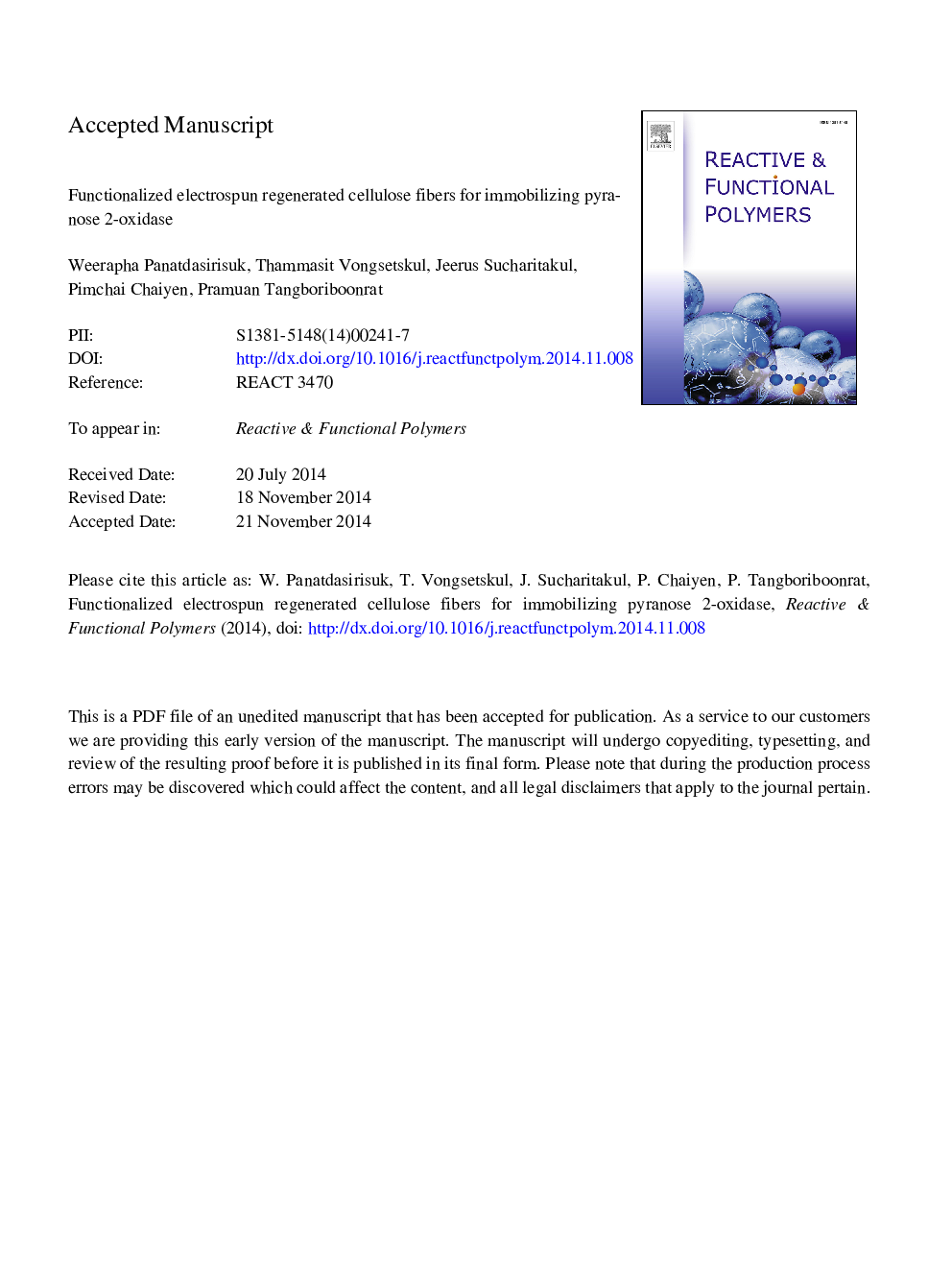| Article ID | Journal | Published Year | Pages | File Type |
|---|---|---|---|---|
| 5209896 | Reactive and Functional Polymers | 2015 | 17 Pages |
Abstract
This work aims to reuse pyranose 2-oxidase (P2O) and improve its thermal stability compared to the wild-type enzyme by immobilizing onto regenerated cellulose fibers (RC). The P2O-immobilized RC fibers (P2O-RC) showed the improvement in terms of thermal stability. Cellulose acetate (CA) fibers (229 ± 42 nm) were electrospun from 17% w/w CA (MW â¼3 Ã 104 g/mol) with 5% w/w Tween 80 dissolved in a mixture of water (25% w/w) and acetic acid (75% w/w) at an applied voltage of 25 kV and a fiber collection distance of 10 cm. Then, the fiber surface was treated with 0.5 M potassium hydroxide in ethanol and 12% w/v glutaraldehyde using aluminum sulfate hexadecahydrate as a catalyst before P2O was immobilized on the treated fibers. Effects of the immobilization process on thermal and pH stability of P2O were investigated by measuring P2O activity based on peroxidase coupled assay. Results indicated that P2O-RC catalyzed the oxidation of glucose at high temperatures (60 and 70 °C) better than the free enzyme did. Therefore, P2O-RC are potentially useful as a heterogeneous catalyst under the conditions that P2O cannot endure.
Related Topics
Physical Sciences and Engineering
Chemistry
Organic Chemistry
Authors
Weerapha Panatdasirisuk, Thammasit Vongsetskul, Jeerus Sucharitakul, Pimchai Chaiyen, Pramuan Tangboriboonrat,
